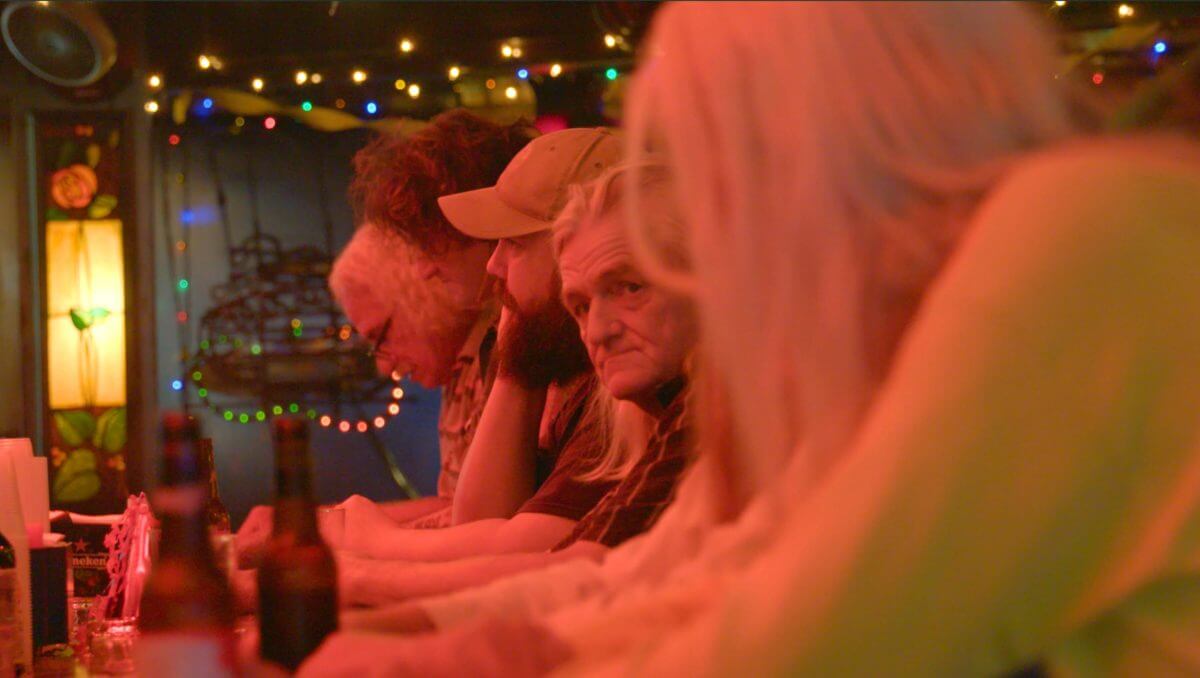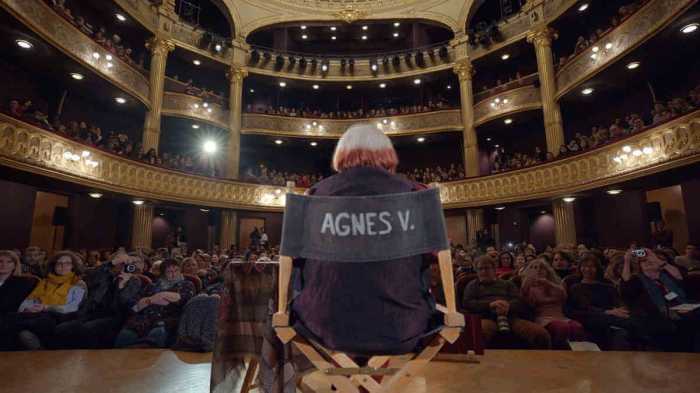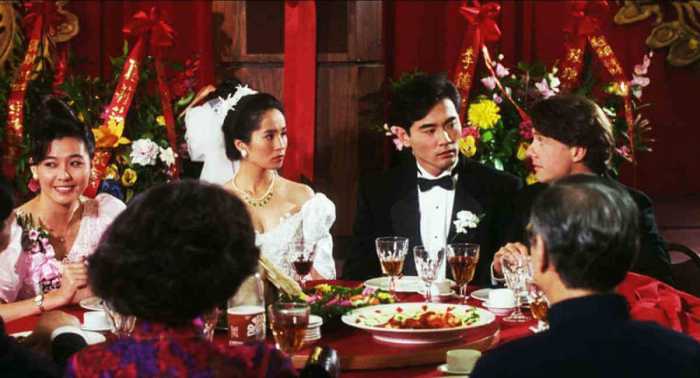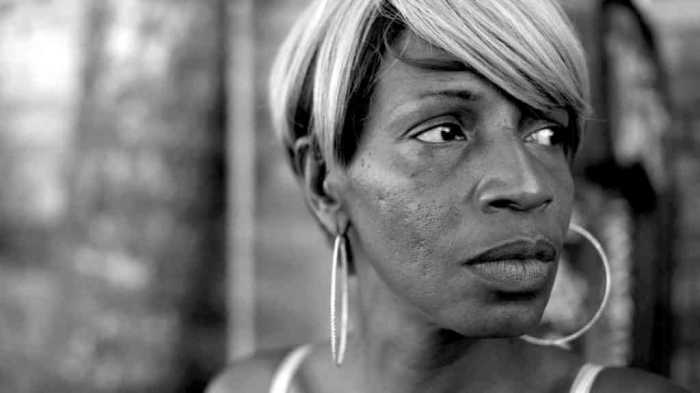Bill and Turner Ross’ “Bloody Nose, Empty Pockets” portrays a special going-out-of-business sale: an extended bender on the last night of a Las Vegas dive called Roaring 20s. The reference in the bar’s name to Raoul Walsh’s 1939 gangster film cues us in on the bar’s old-fashioned nature. (While it’s a real establishment using that name, “Bloody Nose, Empty Pockets” was actually shot in New Orleans.) With this film, the Ross brothers take a step toward the improvised fictions with non-professional actors that Jean Rouch made in France and Africa in the ‘60s. A range of influences are at play here: John Cassavetes, Charles Bukowski, Eugene O’Neill’s play “The Iceman Cometh,” even the sitcom “Cheers.”
“Bloody Nose, Empty Pockets” assembled a cast that’s diverse in age, gender, race, and other backgrounds. It begins in the morning of the Roaring 20s’ final day, as the bartenders talk casually with a few regulars. As the day turns into night, the bar gets increasingly crowded. The cast really got drunk over a three-day shoot, which centered on an 18-hour simulation of the bar’s rush into oblivion. Lighting enhances the claustrophobia, as most of the film takes place under an artificial glow. A brief montage of security-cam footage is a refreshing break.
Directors as different as Cassavetes and Hong Sang-soo have used alcohol — especially when consumed in the quantities that these characters do — as a truth serum. The Weeknd, who turns up on this film’s soundtrack, sang “When I’m fucked up, that’s the real me.” But there’s no danger or chaos in “Bloody Nose, Empty Pockets.” The film creates its own drift, as the handheld camera’s focus shifts from one person to another, or even takes in the bar’s TV. But it keeps returning carefully to a set of themes. (Could it possibly be a coincidence that the TV’s showing a movie about the sinking of the Titanic?)
“Bloody Nose, Empty Pockets” is quite conscious of hitting its marks, like an actor improvising their movements before returning to a chalk outline on the set. The film goes back and forth between the freedom of its camera movements and performances and its unmistakable air of contrivance, never resolving these contradictions.
So what are this film’s major preoccupations? It keeps bringing up aging and generational turnover. Lowell Landes looks like an elderly hippie, with white hair past his shoulders, but he’s only 58. He gets into several conversations about the awfulness of boomers that sound more like Extremely Online debates (albeit minus the snide nastiness) than real talk. But the damage alcohol has done to him isn’t faked. When he continues drinking around 5 a.m. as the bar closes for the last time, finally preparing to head home, the film does convey an image of a wasted life. Stumblingly but movingly, he warns, “There is nothing more boring than a guy who used to do stuff that doesn’t do stuff anymore because he’s in a bar.”
Where the hybrid film once promised an exciting experiment that questioned the boundaries of both fiction and documentary (Lincoln Center’s “Art of the Real” series was designed to showcase such work), it’s become a formula of its own. Some utterly conventional documentaries have shown their subjects having make-up applied or had a camera film the other camera before going to the usual assembly line of interviews edited with archival footage.
“Bloody Noses, Empty Pockets” tries to be an immersive experience, making the audience feel like we’re trapped in a bar with these people for 100 minutes. It might work better in a movie theater; for home viewing, it’s too easy to escape (and to be reminded of our own sobriety.) At worst, this feels like a ‘90s indie film reconfigured to make it into “Art of the Real.”
One can’t escape the impression that the Ross brothers experimented on their subjects to create the effect they wanted. But they also carefully drew non-professional actors from real New Orleans barflies. The film balances astringency and sentimentality. Roaring 20s is an independent business that’s going under despite its devoted clientele. American life no longer has room for the people depicted here. If they were once romanticized as “beautiful losers,” our current culture values flexing about how awesome and wealthy one is, and sees nothing beautiful about being a loser. (In this respect, the Las Vegas setting might be metaphorical.)
Still, “Bloody Noses, Empty Pockets” is filled with a mood of prickly solidarity, and even a utopian depiction of the bar as a cross-section of America. The closing scenes, which consist of stills from the shoot that include the Ross brothers and their cameras, try to incorporate the directors into this makeshift community. This film blurs the line productively between creating and finding characters, but it doesn’t have anything else to say about the effects of mixing reality and fiction.
“BLOODY NOSE, EMPTY POCKETS” |Directed by Bill and Turner Ross | Utopia | Starts streaming Jul. 10 | Film at Lincoln Center Virtual Cinema | filmlinc.org


































